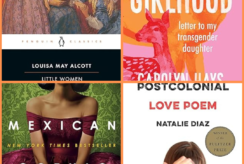As we enter into the poetics of April, also known as national poetry month, here are four voices from well to lesser known.
The Tradition – Jericho Brown
Winner of the Pulitzer Prize, Brown visited the last American Association of Writers and Writing Programs (AWP 2024) conference, and I loved his speech and humor. Besides that, his collection that won the Pulitzer Prize speaks on social issues, specifically in the U.S., from mass shootings to police brutality. The language does not shy from being confrontational – and artistic. From the body as a garden to eyes of dissociation – the diction and imagery will just as much captivate you as the social commentary and heartbreaking narratives.
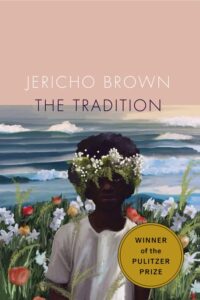
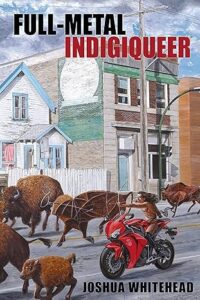
Full-Metal Indigiqueer – Joshua Whitehead
Love experimentation? Whitehead non-stop visual experimentations in this piece is up your alley. The black and white artistic spaces across pages speaks volume to social positions in cultures. Whitehead lives as an indigenous persons in Canada and depicts intergenerational traumas on indigenous families. They also unravel the spaces between and across identities as they are two-spirited (otherwise known as non-binary). The narratives broke my heart the more I read into this collection. The traumas and harsh realities that minority groups face is upfront in Whitehead’s diction, especially in relation to death.
Vexations – Annelyse Gelman
Gelman could give T.S. Eliot’s “The Waste Land” a run for his money. This collection is shaped as one fleshed out poem documenting a narrative between mother and daughter. We move through the same stanza formation (of six lines) which evoked a very tradition feel for me. It requires a lot of patience and determination due to the format, but I loved unravelling her apocalypse, relationships, empathy, and social construct (or lack thereof). In the author’s note, Gelman cues us in, “Vexations is titled and structured after Erik Satie’s solo piano composition of the same name,” combining T.S. Eliot’s and Erik Satie’s art into her own poetic narrative.
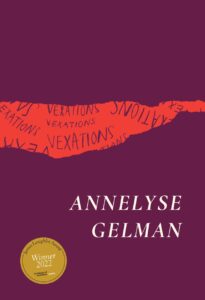
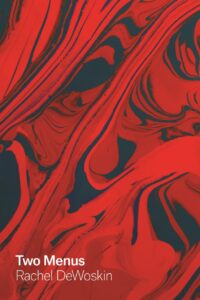
Two Menus – Rachel DeWoskin
If you love dichotomies, DeWoskin’s mimicry of Beijing’s two restaurant menus is perfect for you. She sits us, the readers, between the two “menus” and asks us to stay with her in this liminal space. The white space lingers from page to page, asking us to reconsider the boundary that sits between her dichotomies and the collision that can come out of the two. The dichotomy of language and translation across worlds has to be my favorite motif throughout this collection. Though, she unravels other social binaries such as safety/danger, youth and adulthood (/womanhood), love/hate, and more.


